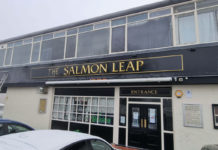Further copyright collection agencies may materialise

THIS month I’m giving alcohol a rest – and looking instead at other forms of licensing that have occupied my attention over the past few weeks.
A commercial subscription to a television sports provider is a major expense – and one which some businesses have sought to circumvent with dire consequences.
Back in 2014 a Glasgow pub ended up with a huge bill after showing a Sky broadcast of a Scottish Premiership match without a commercial viewing agreement, and then flouting a banning order by showing a Scotland international match.
A Court of Session judge found that the business had breached an interdict (injunction), committed contempt of court and was liable to pay a substantial amount of damages to the broadcasting giant. The final bill was in the region of £73,000.
For any business tempted to take a chance and show a sports programme requiring a commercial viewing agreement, my advice is simple: don’t do it.
But if you have fallen into temptation, get caught by undercover investigators and find yourself on the receiving end of a lawyer’s letter threatening hellfire and damnation, you may be able to avoid the worst consequences.
That letter will, very properly, suggest that legal advice is taken before signing the broadcaster’s ‘stay out of jail’ agreement. On no account ignore the letter – it’s not a bluff – and speak to a solicitor right away.
Depending on the circumstances of the case, it’s very possible that the worst of the financial pain can be avoided.
You should also be aware that pirating a broadcast is a criminal offence under the Copyright Designs and Patents Act 1988: just a few weeks ago, a pub owner in Watford was convicted of showing Sky Sports illegally and ended up paying around £18,000 in fines and costs. (Incidentally, that case was brought by FACT – the Federation Against Copyright Theft, while in Scotland prosecution decisions rest exclusively with the Procurator Fiscal.)
In the past few weeks, there’s been a separate television licensing development that’s landing businesses with further unwelcome costs.
The trade is very familiar with the requirements of the Performing Rights Society and Phonographic Performance Limited in relation to music copyright.
Now, another player has entered the scene.
Until a change in the law back in 2017, copyright owners had no claim on the showing of free-to-air broadcasts in public places provided there was no entry fee. But as a result of the change bringing UK law into line with the EU position, the Motion Picture Licensing Company (MPLC) was empowered to seek a licence fee payment where programmes were shown in the likes of bars, hotel foyers, reception areas and so on. At the time of the amendment, the MPLC confirmed that it was not looking for payments in relation to hotel bedrooms – but it reserved the right to revisit the position.
Now, businesses are receiving letters looking for annual fees where televisions are installed in those bedrooms.
At first blush it may look like a scam, particularly since the letter provides no legal basis for the payment demand.
But it seems that, if asked to justify the fees, the MPLC refers to a European Court judgment.
It’s not an easy read – even for a lawyer – but bizarrely the court held that hotel rooms, once made available to customers, couldn’t be considered as “coming within its private sphere”. Thus the communication of a copyrighted work by means of televisions constituted “communication to the public”.
I’m sure we’re going to hear more about this.
I understand that the Scottish Licensed Trade Association is actively monitoring developments along with UK Hospitality; in my view at least, there’s scope to challenge that decision – and there is, of course, the Brexit dimension.
It’s also possible that other payment demands will come out of the woodwork.
The MPLC represents a wide range of copyright holders, including film companies and independent producers, but its coverage isn’t 100% so if its position prevails we may see other collection agencies emerge.

Jack Cummins is one of Scotland’s leading licensing lawyers. Every month he writes on licensing law and answers readers’ questions in SLTN.
Do you have a legal question for Jack Cummins?
Email sltn@peeblesmedia.com or write to Legal Clinic; freepost PEEBLES MEDIA GROUP
Jack Cummins is unable to enter into personal correspondence on readers’ questions. The advice offered in SLTN is published for information only. No responsibility for loss occasioned by persons acting or refraining from action as a result of material contained in SLTN can be accepted by the author or publisher.























